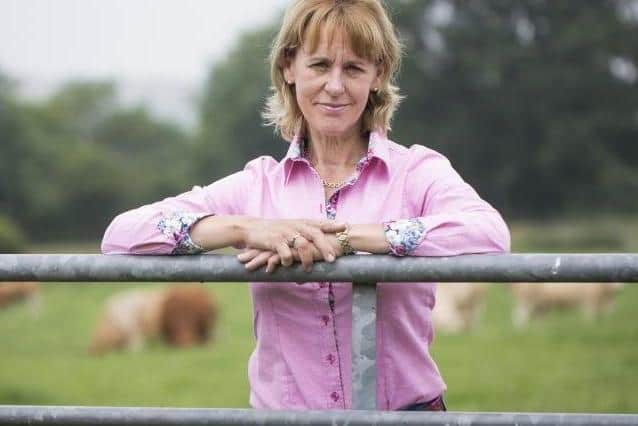Uk-Australia trade agreement finalised - ‘one-sided deal will do little to benefit UK farmers’
and live on Freeview channel 276
In it, there appears to be “extremely little to benefit British farmers”, according to NFU president, Minette Batters.
“We will analyse the detail in full, but, on the face of it, this is a one-sided deal,” Mrs Batters stated.
Advertisement
Advertisement
“When it comes to agriculture, the Australians have achieved all they have asked for and British farmers are left wondering what has been secured for them.


“In particular, it is disappointing that the UK government has capitulated to Australian demands to time-limit any safeguards for sensitive sectors.
“Despite assurances that these sectors would be afforded some level of protection, we will see full liberalisation of dairy after just six years, sugar after eight years and beef and lamb after 15 years.
“There will also be no safeguards available for any products if imports reach damaging levels after that 15 years is up.
Advertisement
Advertisement
“Just as concerningly, the UK has agreed to beef and lamb quotas, which will favour imports of high-value cuts, despite this being the end of the market where British farmers tend to derive any value from their hard work.”
The NFU president continued: “It’s also difficult to discern anything in this deal that will allow us to control imports of food produced below the standards legally required of British farmers, for instance on land deforested for cattle production or systems that rely on the transport of live animals in a way that would be illegal here.
“Ultimately, this deal simply serves to heap further pressure on farm businesses, at a time when they are facing extraordinary inflationary pressure and sustained labour shortages - an issue the entire food supply chain agreed needed urgent action at a cross-sector summit earlier this week.
“The government needs to level with farmers about the commercial reality of this and ditch the soundbites that lost any meaning a long time ago.”
Advertisement
Advertisement
Mrs Batters said the government needs to set out a detailed agri-food export strategy, with complementary policies that will enable UK farmers to “compete and adjust”.
She added: “We have seen some progress as the government begins to set out its export strategy, but much, much more is needed, and implementing our three-point plan for getting farming ‘match-ready’ would be a good start.
“I hope that MPs will now take a good, hard look at this deal to see if it really does match up to the government’s rhetoric to support our farmers’ businesses and safeguard our high animal welfare and environmental standards.
“I fear they will be disappointed,” she ended.
Meanwhile, the Soil Association’s head of food policy, Rob Percival, remarked the Australians have “played a blinder”.
Advertisement
Advertisement
“But, there’s little in the deal that will benefit British farmers or citizens,” he stated.
“It’s void of common sense.
“As British farmers are stepping up to meet the environmental challenges of this century, our government signs a deal that undercuts them.
“And, as the British public declares its concern for animal welfare and the climate, we commit to importing deforestation-risk beef from a country ranked last out of 193 countries in the latest UN-backed Sustainable Development report.
“The logic behind the deal is difficult to discern, but it seems to be ‘free trade at all costs’, served with a side of hormone-treated cattle.”
Advertisement
Advertisement
Mr Percival concluded: “We must hope that the government’s upcoming response to the National Food Strategy is more coherent and ambitious.”
Compassion in World Farming has said it is “deeply concerned” by the free trade agreement signed today.
It has raised concerns that this deal will allow “cheap imports of meat, eggs and dairy, such as beef which was reared intensively in feedlots, or chicken and pork that have been routinely fed antibiotics to compensate for low welfare conditions” to be permitted into the UK.
Dr. Nick Palmer, head of Compassion in World Farming UK, commented: “Compassion in World Farming is extremely disappointed and deeply concerned that the UK government has now signed a free trade agreement (FTA) with Australia that fails to protect UK animal welfare standards.
Advertisement
Advertisement
“It means British farmers will be exposed to competition from Australian imports of meat, eggs and dairy produced through inhumane production standards.
“These intensive farming methods cause sustained suffering to animals and, through massive overuse of antibiotics, could result in real risk to human health too.”
He added: “The UK government has repeatedly said that our animal welfare standards will not be weakened after leaving the EU.
“However, this deal proves otherwise.
“The weak wording in this agreement must not be repeated in future trade deals, with countries like the US, Canada and India, which are likely to be signed in the future.”
Advertisement
Advertisement
Mr Palmer is urging the government to develop a set of core standards that would need to be met in order for imports of certain products to be permitted – ensuring this deal does not “become a precedent”.